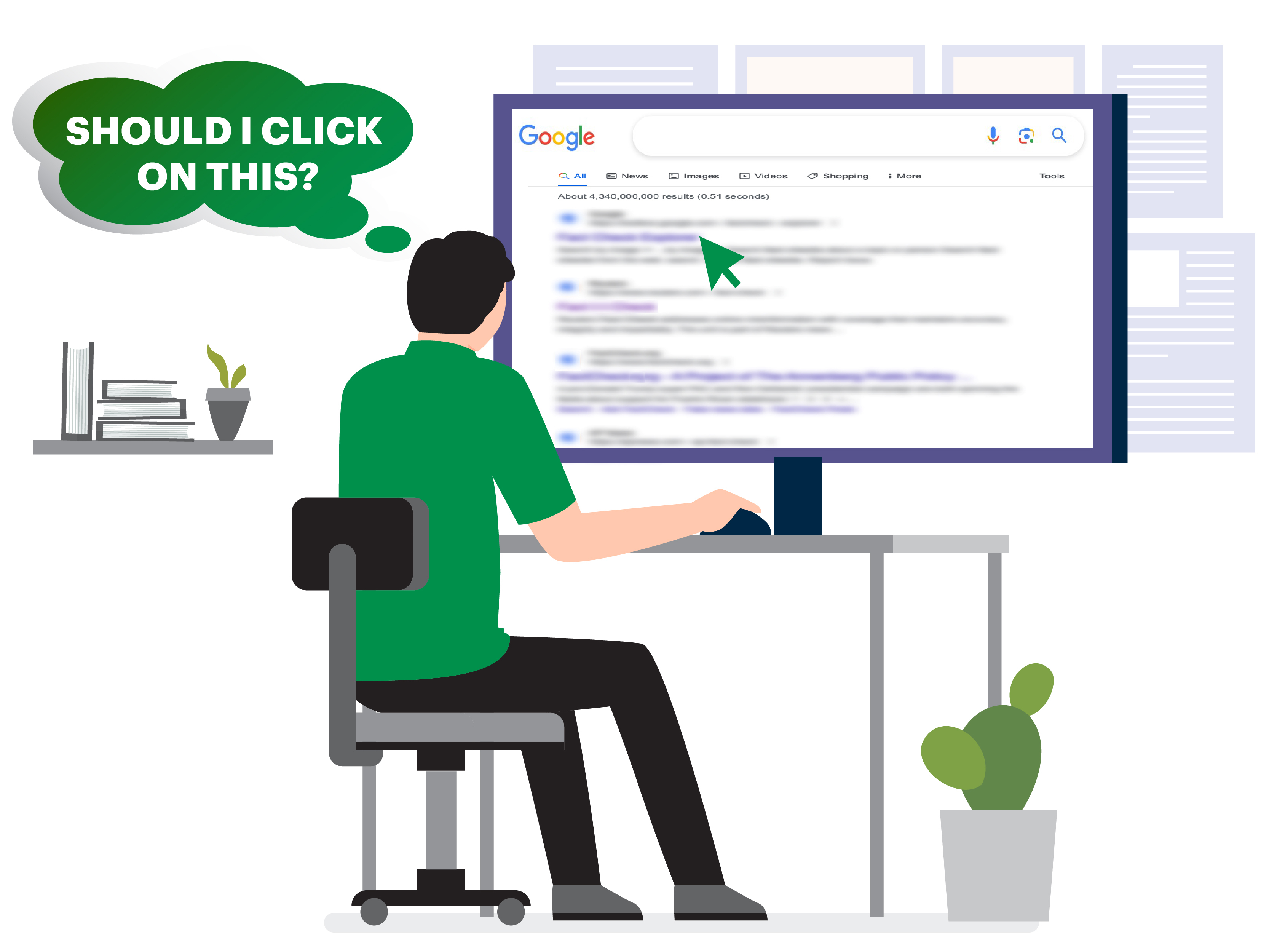By: umme kulsum
November 20 2023
Clicking with caution: The new age of media literacy

(Source: Logically Facts)
In today's digital era, the reflex to turn to search engines for answers is common and has almost become second nature for most people. Yet, with each web search yielding thousands of results, selecting the correct link becomes critical. Which one should you click on? Which one should you believe? Are all search results dependable?
Many people tend to click on the first search result without thoroughly scrutinizing it, and while the first link is often from a credible source, that is not always the case.
So, how does one sift through this overwhelming haystack of information and arrive at the proverbial needle? Here’s a simple trick: Exercise click restraint.
Taking the time to evaluate various search results, verifying sources, and considering the credibility of the information can help us make more informed choices and deepen our understanding of the topic at hand. Thus, developing this restraint is a fundamental yet important aspect of information literacy in the digital age.
What is Click Restraint?
Click restraint is a simple yet valuable technique that ensures individuals are not overwhelmed by search results or exposed to irrelevant or low-quality content. It encourages people to approach online information consumption with discernment, emphasizing the importance of confirming the accuracy of a link before clicking or engaging with it. In the face of widespread misinformation, clickbait, and misleading content, exercising click restraint can help curb the spread of false information.
For practical concerns, here's a quick guide to verifying online sources:
- Prioritize reputable sources: Instead of clicking on every search result, focus on well-known and reputable sources known for providing accurate information. Evaluate the source's credibility, expertise, and authority on the topic. Academic institutions, government websites, established news outlets, and expert blogs are often reliable sources.
- Limit clicks: Avoid hastily clicking on every link that appears in the search results. Instead, review the snippet or brief descriptions the search engine provides to help determine if a source is worth exploring.
- First link isn’t always the best: The top-ranking link may not necessarily be the most credible. Various factors impact the ranking of sources on search engines like Google. Remember to read laterally when trying to verify information.
- Cross-reference information: Verify information by cross-referencing from multiple sources. Consistency across credible sources is a strong indicator of reliable information.
Exercising caution on social media
- Avoid clickbait: Resist clicking on sensational headlines and articles.
- Critical thinking: Question the accuracy and validity of the information presented in social media posts before sharing or endorsing it.
- Responsible sharing: Refrain from sharing content on social media without critical analysis, curbing the rapid spread of misinformation and falsehoods.
- Educate Yourself: Stay informed about common misinformation tactics to identify and avoid them.
More from Logically Facts on media literacy
- Reading beyond the headline
- Why are we susceptible to online misinformation?
- Geolocation for fact-checking: Why the 'where' is important
- How to identify misinformation about natural disasters
- Real or fake? Here’s your guide to detect AI-generated images
(Edited by Nitish Rampal)


